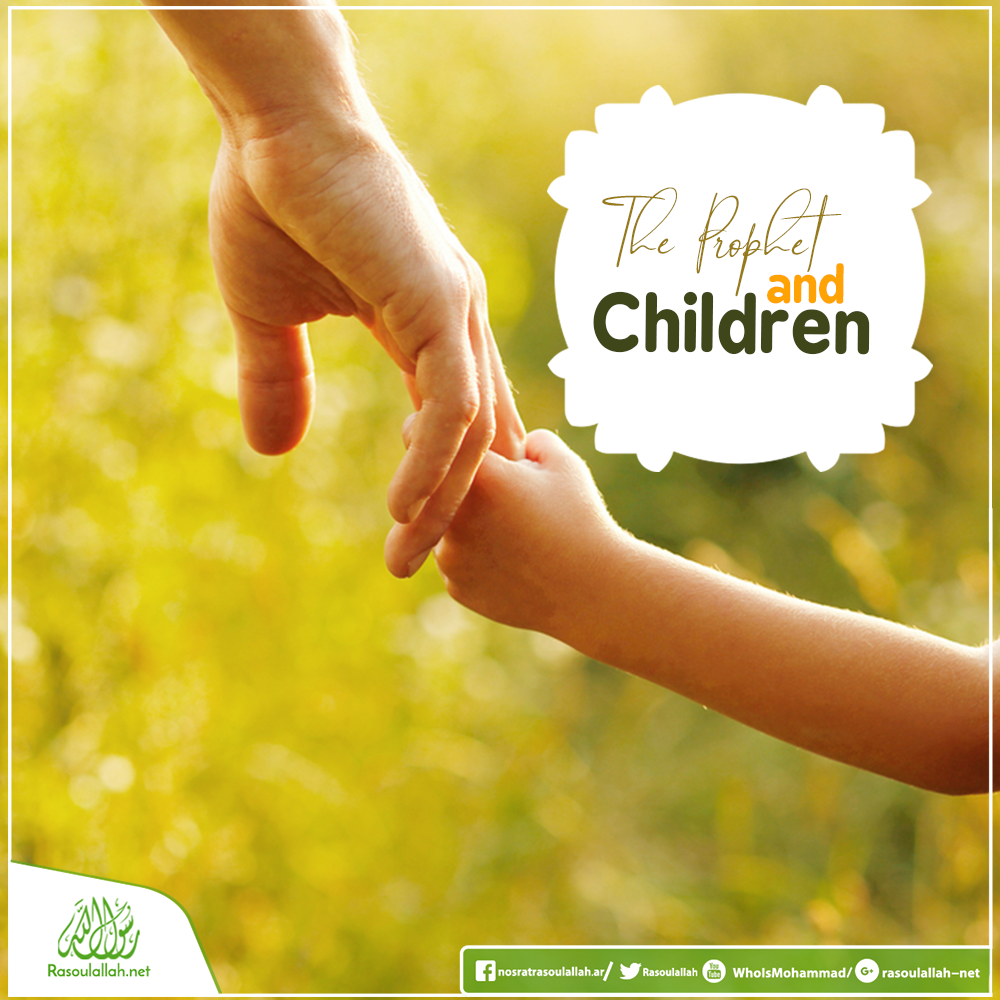Search
The Prophet and Children

Prophet Muhammad, may God send His praises upon him, was an extraordinary husband, a perfect father, and a unique grandfather. He was unique in every way. He treated his children and grandchildren with great compassion and never neglected to direct them to the straight path and to good deeds. He loved them and treated them tenderly, but did not allow them to neglect matters related to the afterlife. He showed them how to lead a humane life and never allowed them to neglect their religious duties or to become spoiled.
His ultimate goal was to prepare them for the Hereafter. His perfect balance in such matters is another dimension of his divinely-inspired intellect. Anas Ibn Malik, the Messenger’s helper for 10 years, says:
“I have never seen a man who was more compassionate to his family members than Muhammad.”
(Saheeh Muslim)
Muhammad was a human like us, but God inspired in him such an intimate affection for every living thing that he could establish a connection with all of them. As a result, he was full of extraordinary affection toward his family members and others.
All of the Prophet’s sons died. Ibrahim, his last son, died in infancy. The Prophet often visited his son before the latter’s death, although he was very busy. Ibrahim was looked after by a nurse. The Prophet would kiss and play with him before returning home.
The Prophet showed this degree of love to Umamah to teach his male followers how to treat girls. This was a vital necessity; only a decade earlier, it had been the social norm to bury infant or young girls alive. Such public paternal affection for a granddaughter had never been seen before in Arabia.
The Messenger proclaimed that Islam allows no discrimination between son and daughter. How could there be? One is Muhammad, the other is Khadijah; one is Adam, the other is Eve; one is Ali, the other is Fatima. For every great man there is a great woman.
As soon as Fatimah, the daughter of the Messenger, entered the room where the Messenger was, he would stand, take her hands, and make her sit where he was sitting. He would ask about her health and family, show his paternal love for her and compliment her.
Fatimah, knowing how fond he was of her, loved him more than her own self. She always watched her father and how he called people to Islam. She wept profusely when the Messenger told her that he would die soon, but her tears of sorrow turned to tears of joy when he informed her that she would be the first of his family to follow him.

